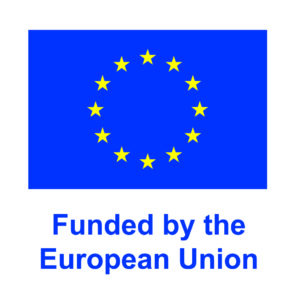Welcome to the first edition of our “GENEGUT: Behind the Scenes” campaign — a series that shines a light on the dedicated teams behind GENEGUT. Each article features one of our partners and showcases their unique role, contributions, and passion driving this EU-funded project forward.
We’re kicking things off with Bangor University, a key partner bringing deep expertise in health economics and health technology assessment.
Who They Are
The Pharmaceutical Economics, Policy and Prescribing Research Group (PEPPER) in the North Wales Medical School, Bangor University, is led by Professor Dyfrig Hughes. The group focuses on methodological research in economic evaluation and behavioural health economics, as well as applied research in the context of medicines, health technologies, and global health challenges.
What They Do in GENEGUT
Partners from Bangor University are applying their skills in health economics and health technology assessment to develop evidence supporting the pathway to approval and market access. Their main contribution? An early determination of the value — and therefore indicative pricing — of RNA-based therapies for difficult-to-treat ileal Crohn’s disease.
Why GENEGUT Matters
“Working within an international, multidisciplinary team of enthusiastic and highly engaged research investigators, to develop a novel and innovative treatment that aims to benefit patients with difficult to treat ileal Crohn’s disease.”
The Future Impact of GENEGUT
“If GENEGUT realises its objective of developing an orally active RNA-based treatment, which is further proven to be clinically effective, safe and cost-effective, it will represent an important step forward in the management of Crohn’s disease, leading to improvements in patients’ quality of life and reduction in the need for surgery.”
Key Insights and Learnings
“Identifying treatment pathways in the context of a first-in-class therapy, and applying methods for estimating its effectiveness in the absence of clinical data has been both challenging and rewarding. Our model-based approach will represent a template for future early health technology assessments.”
What Sets GENEGUT Apart
“GENEGUT stands out for its focus on the early-stage health technology assessment and economic value assessment of therapies at the pre-clinical stage of development. This enables close collaboration with scientists developing the treatment and allows for a comprehensive exploration of the therapy’s value proposition.”
Three Words That Describe GENEGUT
Innovative, collaborative, impactful
Fun Fact
“Having good food and company is a proven route to being productive when needing to stay up late in the office to meet deadlines!”
We’re just getting started. In the coming weeks, we’ll continue highlighting the GENEGUT teams working across Europe to make this groundbreaking treatment a reality.
Follow us to meet the people behind the science — and see how their passion, skills, and insights are helping shape the future of RNA-based therapeutics for Crohn’s disease.


